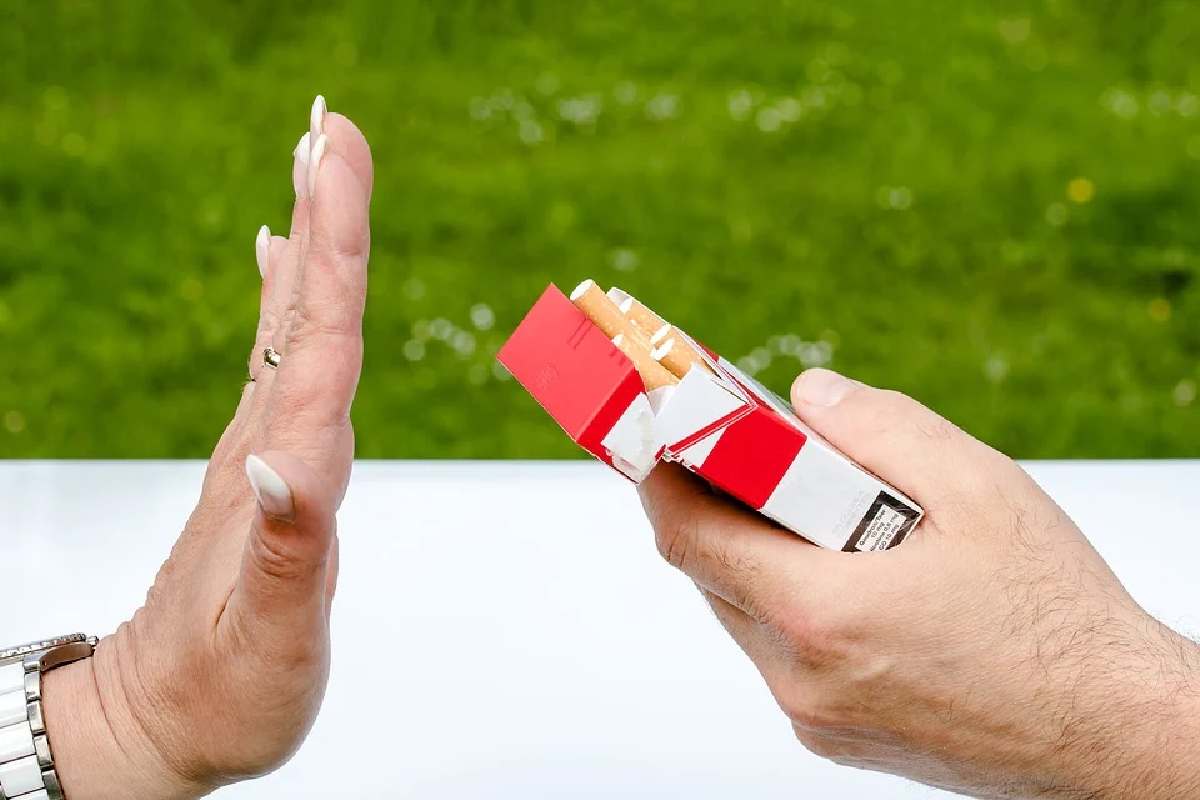Reverse smoking involves placing the lit end of a cigarette inside the mouths, directly exposing oral cavities to heat and toxic substances.

What is reverse smoking?
In a concerning development in various parts of India, particularly in coastal Andhra Pradesh, the practice of “reverse smoking” persists despite substantial efforts to eliminate it.
This distinctive behaviour involves smokers placing the lit end of a cigarette or homemade cigar inside their mouths, directly exposing their oral cavities to intense heat and toxic substances.
Despite health campaigns, this phenomenon has not decreased, especially in rural and tribal regions where it is deeply rooted in cultural traditions.
According to the Tata Institute of Fundamental Research, the incidence of palate cancer in areas where reverse smoking is standard is 48-50 percent, a stark contrast to just 3-10 percent in other regions.
Dr Mohammed Hussain J, a resident of radiation oncology in Rohtak in Haryana, emphasised the severity of the practice.
“Reverse smoking, predominantly practised in coastal regions of India and other parts of the world, involves the hazardous method of placing the burning end of a cigarette or ‘chute’ inside the mouth,” he said.
“This not only exposes the smoker’s oral mucosa to intense heat and harmful chemicals but also significantly raises the risk of oral cancers,” added the doctor.
“The practice, more common among women, necessitates an aggressive treatment approach, often involving surgery followed by chemoradiation or radiation alone, depending on the stage of the cancer,” he noted.
Dr Vishal Rao, the chief of head and neck surgical oncology and robotic surgery at HCG Cancer Centre in Bengaluru, speaking to South First, highlighted the cultural roots and health risks associated with this practice:
“Reverse smoking is a deeply ingrained cultural practice in some regions, notably among older women who pass this tradition to the next generations,” he said.
“By holding the burning end of the cigarette against the palate, the smoker experiences what could be considered a nicotine kick,” explained Rao.
Unfortunately, this habit has become a cultural norm in certain areas,” said the oncology expert.
“This habitual practice significantly increases the risk of developing oral cancers and pre-cancerous conditions, coupled with generally poor oral hygiene due to multiple burns on the palate,” he said.
The personal experiences of reverse smokers highlight the varied reasons behind the adoption of this hazardous habit.
A young adult from Bengaluru shared that he was drawn to reverse smoking out of curiosity and the perceived more-substantial effect it offered.
Another from Chennai mentioned using the technique as a way to smoke discreetly at social gatherings.
Meanwhile, an individual from Andhra Pradesh described it as a tradition observed within his family, practised without considering its health implications.
Doctors warned that the health consequences of reverse smoking were severe and multifaceted, impacting not only the oral health of individuals but also their respiratory and cardiovascular systems.
They explained that this practice leads to a high incidence of oral cancers, particularly of the palate, where the heat and smoke have direct contact.
Continuous exposure can also cause leukoplakia and erythroplakia — pre-cancerous conditions characterized by white and red patches in the mouth, respectively.
Beyond the oral cavity, reverse smoking increases the likelihood of chronic bronchitis, impaired lung function, and heart diseases due to the inhalation of hot, toxic substances.
Dental health is severely compromised, with an increased risk of tooth decay, gum disease, and even tooth loss.
These extensive health issues underscore the need for urgent medical attention and preventive interventions to address this dangerous practice.
Dr MD Manzur, the national president of the All India Dental Surgeons Association, noted: “Reverse smoking, prevalent especially in rural Andhra Pradesh, poses severe health risks.”
He added that these included a higher likelihood of developing mouth cancer, pre-cancerous conditions, chronic bronchitis, severe gum disease, and extensive tooth decay and staining.
“The habit contributes significantly to a range of debilitating diseases, highlighting the need for increased awareness and intervention at community and national levels,” he said.
Meanwhile, Dr Shalini Singh, lab director at Ampath Labs in Hyderabad, explained the diagnostic challenges.
“Reverse smoking presents unique challenges from a diagnostic standpoint as well,” she said.
“Chronic exposure to heat and toxins from the lit end of the cigarette can result in distinct patterns of tissue damage and inflammation within the oral cavity, often manifesting as leukoplakia or erythroplakia,” she concurred.
“These changes may mimic other benign conditions, making early detection and accurate diagnosis crucial,” explained Singh.
“The most prominent effect of reverse smoking is seen on the palate and tongue. Furthermore, the long-term effects of reverse smoking extend beyond the oral cavity, affecting respiratory and cardiovascular health,” she said.
NGOs and government agencies are making efforts to make villages tobacco-free and educate the public about the dangers of tobacco use.
However, the deep-rooted cultural ties and economic dependencies on tobacco farming complicate these initiatives.
S Balaraju, the director of the NGO Nature, emphasised the need for enhanced awareness and support for alternative crops to reduce dependence on tobacco farming.
Doctors highlight the urgent need for effective education and preventive measures is critical to halt the spread of this dangerous practice and mitigate its devastating health consequences.

Jul 26, 2024

Jul 26, 2024

Jul 26, 2024

Jul 26, 2024

Jul 26, 2024

Jul 26, 2024